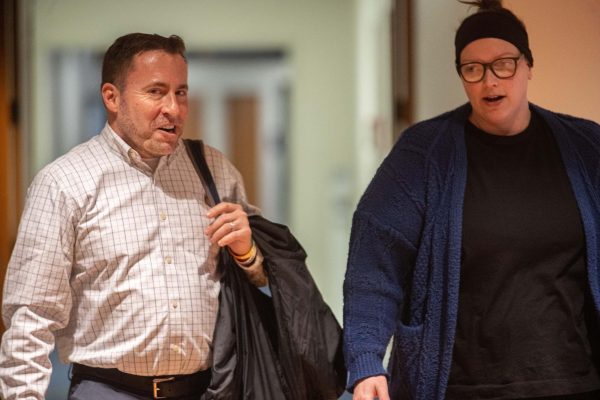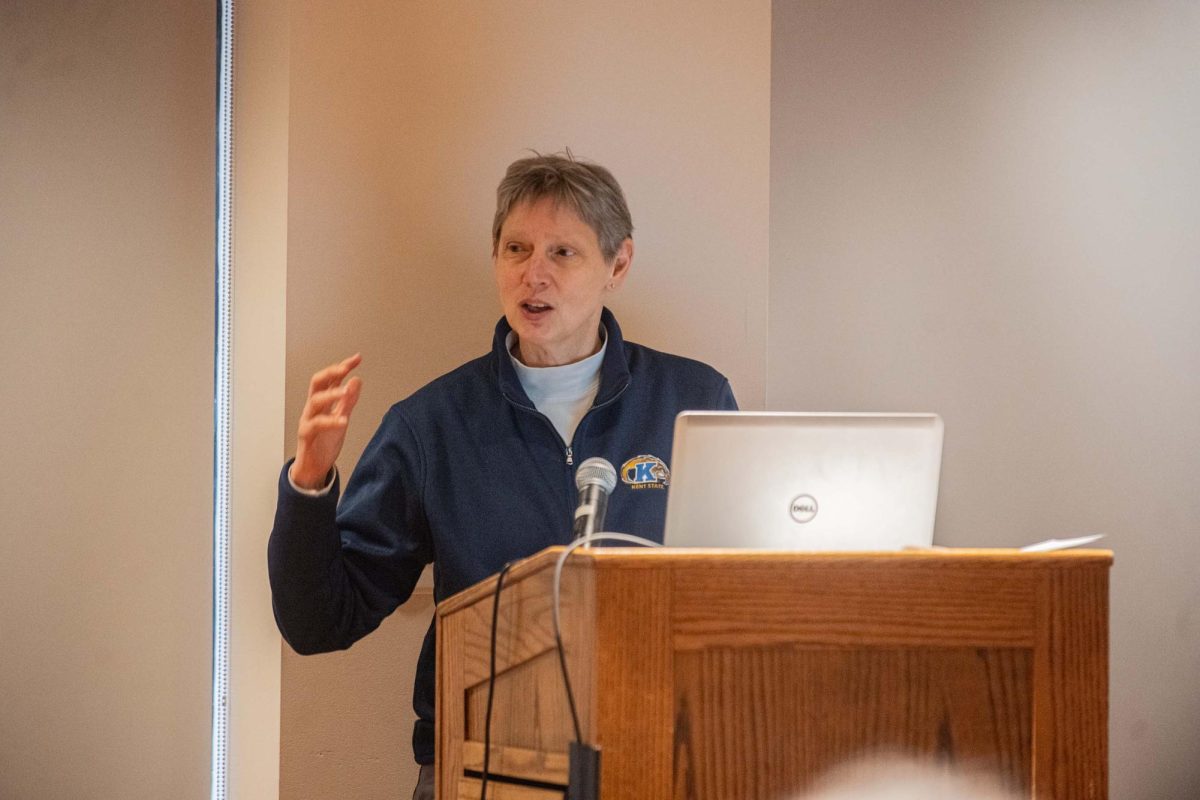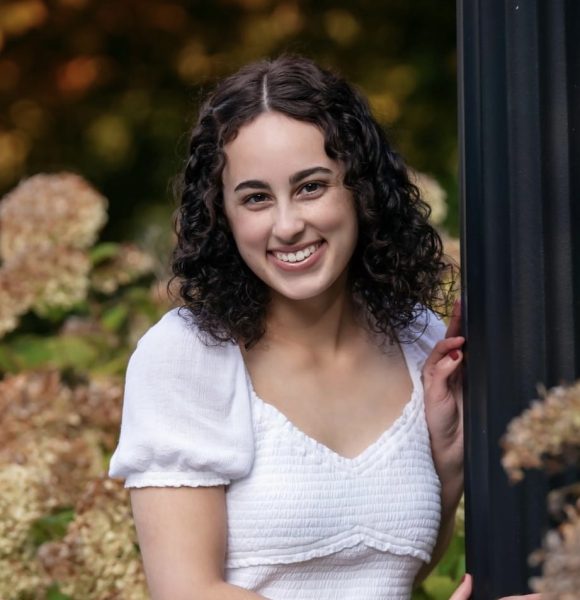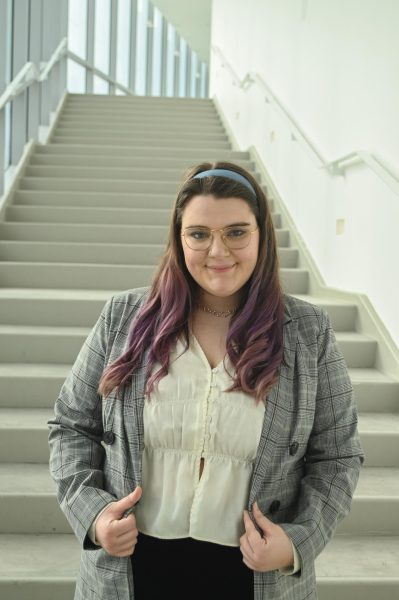Three out of four people at Kent State say they’re comfortable with the university’s climate, though 37% have seriously considered leaving, according to the latest Engagement and Well-Being Survey.
Completed in fall 2024 and delivered to KSU April 9, Rankin Climate, a company that collects climate assessment data, conducted the survey in collaboration with the Division of People, Culture and Belonging.
Amoaba Gooden, vice president of the Division of People, Culture and Belonging, said in the presentation that campus climate shapes the lives of a lot of people.

“Now more than ever, understanding how we experience the campus is critical as we continue to improve a sense of belonging for all members of our community,” said Gooden, who also sits on a chair of the survey committee alongside Eboni Pringle, senior vice president of the Division of Student Life and Kathy Wilson, an economics professor.
Other key data about students showed 83% of student and faculty respondents were comfortable or very comfortable in classes, 37% had seriously considered leaving KSU, 19% experienced exclusionary conduct within the past year at KSU and 27% of students experienced sexual and gender-based harassment at KSU.
Data found will be used to create positive change, said Brianna Molitor, project director for the Division of People, Culture and Belonging.
“We have really motivated folks on our campus who take that data and want to do something with it and want to make change,” Molitor said.
Specific findings
4,889 KSU students, staff and faculty completed the survey between September and October 2024, resulting in an overall response rate of 14%, according to the key findings report. 50% were undergraduate students, 8% were graduate or professional students, 14% were faculty and 27% were staff.
Becky Crandall, project manager and data scientist at Rankin Climate, said in the presentation the process doesn’t stop after data collection.
“Data are great, but if you don’t humanize those data points and think about the people that we represent, why are we here?” Crandall said.
Many of the data points collected showed differences in comfort between these groups of students:
- Those who attend KSU’s main campus versus a regional campus.
- Gender expansive identifying versus women and men.
- Multiracial versus white.
- Having a disability versus not having a disability.
- Queer versus heterosexual.
But Susan Rankin, project director for Rankin Climate, said this is common among many universities.
“This is not unique to Kent,” Rankin said. “These are things that we find in other cities around the country.”
Key data comparisons are listed below, each referring to undergraduate students.
Other data showed the top three reasons undergraduate students seriously considered leaving KSU were a lack of a sense of belonging at 44%, personal reasons at 38% and financial reasons at 32%.
The top three reasons for staying were being close to home at 32%, connections to peers and student organizations at 24% and career and professional development opportunities at 22%.
The top base of exclusionary conduct for undergraduate students was sexual identity at 26%.
Most commonly, perpetrators of sexual or gender-based harassment were reported as KSU students at 82% and KSU faculty members or teaching staff at 14%. 5% reported harassment to the Office of Gender Equity and Title IX.
Process
Molitor said the process of creating and executing the survey was a joint effort between Rankin Climate and a KSU committee that informed and reviewed all the questions to make sure “everybody on our campus could see themselves in the survey.”
Now that the data has been released, Molitor said an implementation committee will create an action plan. The group, composed of about 25 people, will eventually branch into subcommittees to carry out specific actions.

(Abigail Kress)
Liz Henry, senior director for marketing strategy and research for University Communications and Marketing and part of the implementation committee, said she hopes to start by looking at what the university has been doing well and how those areas can be enhanced.
She said there will also be feedback sessions for people to hear about ideas and have their voice heard before solidifying anything.
By the end of the fall semester, Molitor hopes to have a plan solidified that will go up on the Division of People, Culture and Belonging’s website.
“I’m proud to be at Kent State anyway because I really believe that they said ‘students first,’ and they live ‘students first,’” Henry said. “Without students, why is there a university?”
Wilson said there will be student representatives in the implementation committee. Any students interested in being involved can contact the division.
Kent State was also selected from about 600 institutions to participate in the University of UCLA’s survey looking at how institutions use data from their climate study to make transformational change, Gooden said during the presentation.
Reactions
“It’s a little bit of a double-edged sword,” Wilson said, speaking about survey results. “I’ll be honest, there’s things I saw up there that made me beam … at the same time, there’s some hard stuff.”
During the presentation, Rankin noted the reported success of first-generation students.
“What you’re doing with first-generation students here, we don’t find that anywhere,” she said. “I’ve done 300-plus of these over the last 40 years of my life doing this, so I think that whatever you’re doing with first gen, keep doing it.”
She also pointed out the data that showed the helpfulness of advising at KSU, which she said she does not often see at other universities.
Sekhar Mamidi, student success manager in the Graduate College, said what he found most surprising was that a lack of sense of belonging was the number one reason students considered leaving KSU.
“I thought for students that the financial thing would be number one,” he said. “So, that was definitely something different.”
Mamidi said he didn’t know what to expect coming in, but he felt it was interesting to see the results.
“The positives and successes that they talked about, that’s why I liked Kent State … when I was a student,” he said. “A lot of the things that they talked about were really cool to me because those are things that helped.”
Molitor said she felt obvious action could be taken for members of the community who have disabilities or are neurodivergent.
“We see that there are needs there and that they’re not having the same experiences on campus,” she said. “So, I think that jumps out as a very clear opportunity for us to see where we can make impacts and where we can make change to increase the sense of belonging and make sure that those students, staff and faculty are feeling represented.”
Comparisons to 2016 survey
The last campus climate survey was conducted in 2016. Significant data comparisons related to students are listed below.
- Overall, how comfortable are you with the climate at KSU?
- Down from 79% to 74%.
- “As a Kent State student, I feel valued by other students in the classroom.”
- Up from 64% to 68%.
- “As a Kent State student, I feel that I have faculty whom I perceive as role models.”
- Down from 72% to 69%.
Molitor said positive action was implemented after receiving the 2016 data.
A student subcommittee created the CARES Center, which connects students to food security, housing stability, financial empowerment and mental well-being resources. A faculty mentoring program was also developed, as well as a staff council.
Moving forward, Wilson said receiving the data is just the first step.
“We’re not done — today is the beginning, not the end,” she said during the presentation. “This is when we now take it and make those differences.”
Email [email protected] with questions about the survey. The full results report can be found here.
Lauren Cohen is the general assignment editor. Contact her at [email protected].




